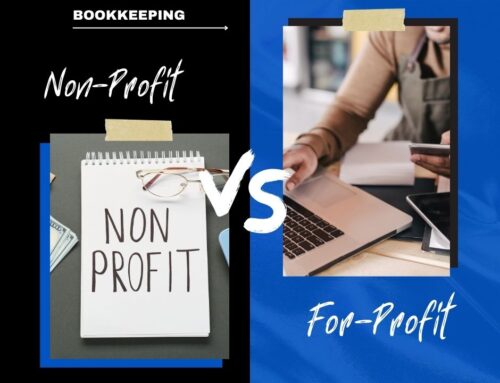Bookkeeping is an essential part of every business, even during the start-up phase. However, start-ups and small business owners tend to focus on growing their business and often overlook the importance of ensuring their bookkeeping records are accurate and kept current. They also often can’t afford to hire an accountant right away, but it’s essential to tackle accounting tasks early and consistently to keep financials on track. The best bookkeeping tips for start-ups incorporate bookkeeping best practices.
Choose an Accounting Method That Works for You
New business owners receive numerous accounting tips and advice that typically covers best practices for simplifying bookkeeping tasks, which begins with deciding on the type of accounting method you want to use. If you expect your start-up to earn less than $25 million in annual revenue, you can choose the less complicated cash accounting method. Otherwise, the IRS requires you to use the accrual method to record transactions as they occur. Get your accounting method set up right away so you won’t be playing catch-up trying to get numerous invoices, receipts and other financial records inputted into your books.
Important Accounting Tips to Tackle First
One of the very first tasks to tackle after you open your start-up business is to separate your personal and business finances. Small start-ups with a single owner are often tempted to put this off as they have tons of things to do to get their business up and going. However, keeping your personal and business transactions separate helps limit your personal liability if your business is sued, simply by tracking business expenses and preventing triggering an IRS audit.
Open business accounts to build and develop business credit and a business credit score, which is different from your personal credit score. A good business credit score can increase your borrowing potential and earn you lower rates on insurance policies. Business credit is also needed to apply for traditional business loans and lines of credit. Business accounts should include a business bank account and business credit cards. Start out on the right foot by transferring business-related bills to your business credit cards instead of your personal credit cards. Also, consider opening a business savings account to help cover unforeseen expenses.
Automate With Accounting Software
Start-ups should investigate comprehensive accounting software that allows small business owners to automate bookkeeping tasks. QuickBooks is one of the most popular accounting software choices for small businesses. It offers an online version that’s ideal for smaller companies and a desktop version suitable for larger ones. Set up your new QuickBooks application to fit your company’s needs, which should help you store, track and analyze all your financial records in one place and work with both accrual and cash accounting methods. It can also perform bank reconciliations, track income and expenses and create cash flow statements and other important financial reports.
Track Revenue and Expenses
It’s not usually feasible for a growing business to track its revenue and expenses using a simple spreadsheet. Robust accounting software programs are extremely helpful in this area because they’re designed to track one-off and recurring expenses. Recording receipts in these programs is relatively straightforward, but to ensure an accurate financial landscape, you must enter receipts weekly or possibly daily if you receive a lot each day. Keep track of all your receipts, no matter how insignificant they may seem.
Accounting software like QuickBooks can also categorize expenses and revenue streams to keep track of your overall financial trends and identify areas of growth based on historical data. Tracking financial trends the longer you’re in business can become complicated without the automation these programs provide. If you’re following bookkeeping best practices and recording transactions appropriately, you can easily review these trends any time you like.
Banking-Related Bookkeeping Tips for Start-Ups
Another bookkeeping best practice is to stay on top of your bank statements. Even if your accounting software is set up to reconcile your bank statements for you, it’s important to look at your banking transactions daily to ensure there aren’t any errors that need to be corrected immediately. Also, look over reconciled bank statements to fully understand the actual cash your business has on hand, which should match what’s recorded in your books. Keeping tabs on your bank statements is an effective way to catch bank errors, but it can also help you detect fraud, track your accounts receivable to ensure payments are made promptly and alert you to any potential cash flow issues or discrepancies in your financial records.
Understand Your Tax Obligations
As you’re initially setting up your small business accounting process, research your tax obligations to understand how your choices impact when your start-up’s taxes are due. Business owners often must pay sales and use taxes or face penalties from the state tax agency. Besides avoiding penalties, understanding taxes also helps you take advantage of any tax deductions or credits your company might be entitled to, which saves you money.
Get Professional Small Business Accounting Help
Start-up business owners have limited time and often aren’t experienced in business finances. Being rushed and/or inexperienced may lead to mistakes that can be detrimental to your business’s growth. If handling all your daily, weekly and/or monthly bookkeeping tasks is causing you stress and taking you away from important aspects of running your business, hire an accounting professional. Start-ups that can’t afford to hire an accountant full-time benefit from outsourcing with the financial specialists at Navitance.
Our comprehensive accounting and bookkeeping services can save you time and money and ensure your financials are kept on track. At Navitance, we can help you establish bookkeeping best practices from the outset or develop best practices if you missed some steps when you started your business. Contact us at 978-809-3282 to learn more about our bookkeeping services or request a consultation.





